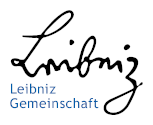- Das Institut
- Forschung
- Diktaturen im 20. Jahrhundert
- Demokratien und ihr historisches Selbstverständnis
- Transformationen in der neuesten Zeitgeschichte
- Internationale und transnationale Beziehungen
- Editionen
- Dissertationsprojekte
- Abgeschlossene Projekte
- Dokumentation Obersalzberg
- Zentrum für Holocaust-Studien
- Berliner Kolleg Kalter Krieg
- Publikationen
- Vierteljahrshefte
- Archiv
- Bibliothek
- Zentrum für Holocaust-Studien
- Aktuelles
- Termine
- Presse
- Neuerscheinungen
- Aus dem Institut
- Themen
- München 1972
- Confronting Decline
- Demokratie. Versprechen - Visionen - Vermessungen.
- Feministin, Pazifistin, Provokateurin
- Der Mauerbau als Audiowalk
- Digitale Zeitgeschichte
- Zeitgeschichte Open
- Der FC Bayern München und der Nationalsozialismus
- Das Deutsche Verkehrswesen
- Zukünfte am Ende des Kalten Krieges
- Von der Reichsbank zur Bundesbank
- Bundeskanzleramt
- Geschichte der Nachhaltigkeit(en)
- Wandel der Arbeit
- Demokratische Kultur und NS-Vergangenheit
- Geschichte der Treuhandanstalt
- Akten zur Auswärtigen Politik
- Dokumentation Obersalzberg
- Edition "Mein Kampf"
- Anonyma - Vom Tagebuch zum Bestseller
- "Man hört, man spricht"
- Newsletter
Roundtable Discussion “Holocaust Education in Times of Russia’s War on Ukraine”

Organized by Babyn Yar Holocaust Memorial Center, East European Holocaust Studies Journal in cooperation with IfZ, Center for Holocaust Studies, München and supported by the Federal Agency for Civic Education
The war in Europe impacted Holocaust education and research in Ukraine related to the fact that survivors and witnesses of the Holocaust were forced to save their lives by fleeing the combat zones, and some of them died in suffering, like Wanda Obiedkova, a survivor of the Holocaust, who lost her life in April 2022, during the siege of Mariupol. War revitalized their traumatic memories of WWII, making interaction with them more challenging and ethically problematic. At the same time, Russian aggression destroys and harms not only the living memory of the Holocaust in Ukraine but also places of memory, like Babyn Yar in Kyiv, Drobytskyj Yar in Kharkiv, Jewish cemeteries, and synagogues.
Apart from that, Holocaust educators witnessed the weaponization of the history of WWII and the Holocaust by Putin’s regime to justify its brutal aggression against Ukraine. Kremlin top politicians and propagandists make inadequate parallels between the stance of Jews during the Holocaust and Russian people during Russia’s war in Ukraine, trying to create the narrative of victimhood. At the same time, the Ukrainian authorities are using the history and memory of WWII for national mobilization in times of existential threat.
The roundtable is focused on challenges for Holocaust educators in Ukraine, Europe and worldwide posed by the brutal Russian invasion of Ukraine. It will discuss strategies for dealing with the distortion of history, and analyses the terminology applied to justify the aggression. Another emphasis will be placed on the question of comparisons, i.e. WWII and today, the role of Ukrainian history in teaching the Holocaust and how educators adjust their activities in times of war.
Program
Opening: Andrea Löw, Center for Holocaust Studies at the Leibniz Institute for Contemporary History, Germany
Greetings: Oleksyh Makukhin, CEO, Babyn Yar Holocaust Memorial Center (BYHMC), Ukraine Introduction: Marta Havryshko, BYHMC, Ukraine
With contributions from:
Anja Ballis, Ludwig Maximilians University, Germany
Zélie Daull, Memorial de la Shoah, France
Gabriella Komoly, Zachor Foundation for Social Remembrance, Hungary
Patrick Siegele, erinnern.at, Austria
Q&A and discussion: Marta Havryshko
Closing remarks: Andrea Pető, Central European University, Austria
For participation, please register by sending an email to zfhs@ifz-muenchen.de. You will receive a Zoom-Link before the event.
The edited transcript will be published in English in the East European Holocaust Studies Journal. A German translation will be available on bpb.de, and a Ukrainian version will be published in Ukraina Moderna.
Overview:
Date: 26 September 2023
Time: 18:00 – 19:30 CET
Where: Online-Webinar (via Zoom)
How: Please register by sending an email to zfhs@ifz-muenchen.de


